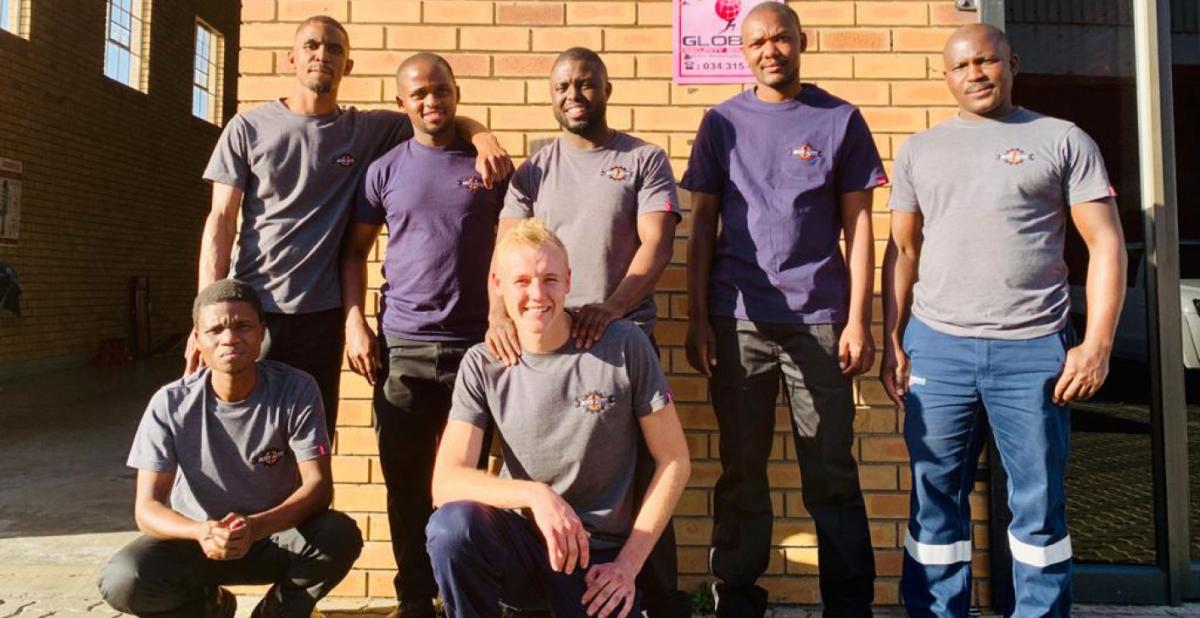Youth urged to shine at TVET colleges
Youth urged to shine at TVET colleges UrsulaGovernment encourages youth to gain practical skills for their vocations and create jobs for others. 
As many young people seek to enrol at tertiary institutions to pursue their dreams, technical and vocational education and training (TVET) colleges are highly recommended to gain practical skills and create jobs.
Government encourages young people to consider enrolling at TVET colleges as an alternative to traditional universities. The country seeks to produce 30 000 artisans a year by 2030.
Boys Auto
Wanda Thobani Msimango (28) and Mbuso Prince Ngwenya (27) from Newcastle in KwaZulu-Natal (KZN) are living proof that being artisans is a useful way of mastering one’s destiny.
In 2019, they established Boys Auto (Pty) Ltd, an automotive repair services company. This was after completing their respective apprenticeship programmes.
“We provide professional mechanical solutions to motor vehicles and commercial vehicles. Our services include servicing, brake repairs, diagnosing what could be wrong with the vehicle and clutch and other repairs. 
“Before starting the business, we both started working from home during weekends, while doing our apprenticeship at different automotive companies. After completing our apprenticeship programmes, we started working for ourselves,” says Msimango.
Msimango and Ngwenya attended Majuba TVET College in Newcastle where Msimango studied Diesel Trade Theory and Ngwenya studied Motor Trade Theory.
After college, they participated in an apprenticeship programme in order to complete their qualifications and get their Motor Trade Test Certificates.
Ngwenya started his apprenticeship programme at BMW Supertech in 2015 and qualified in 2018, while Msimango began his apprenticeship at Bell Equipment in 2015 and qualified in 2019.
Their business has created jobs for four people in their area.
Msimango says the business would not be a success if it was not for the help it received from the National Youth Development Agency (NYDA), which granted the business R50 000 to buy tools for its workshop in order to trade and meet the requirements of the Retail Motor Industry Organisation (RMI).
The RMI accreditation ensures that businesses in the motor industry sell quality products and services at a fair and reasonable price.
Msimango encourages young people to consider becoming artisans because the skills currently needed in the country are offered at TVET colleges.
What is a trade test certificate?
According to the South African Qualifications Authority, a trade test is a final test that is undergone to be a qualified artisan. This test is assessed by a representative from the National Artisan Moderating Body.
An artisan that has a trade test certificate has met the requirements to be called a qualified artisan. One of the moderating bodies that issues trade certificates is the Quality Council for Trades and Occupations.
Did you know?
- If you decide to become an artisan, you will be learning practical skills that you may find useful in day-to-day life.
- Students who wish to apply for entrance must achieve 40% for mathematics (excluding maths literacy) at Grade 9.
- Artisan training includes a combination of theory and on-the-job training. The duration of an apprenticeship varies from 18 to 36 months. Once a candidate has gathered enough on-the-job training and theoretical knowledge, they gain access to do a trade test.